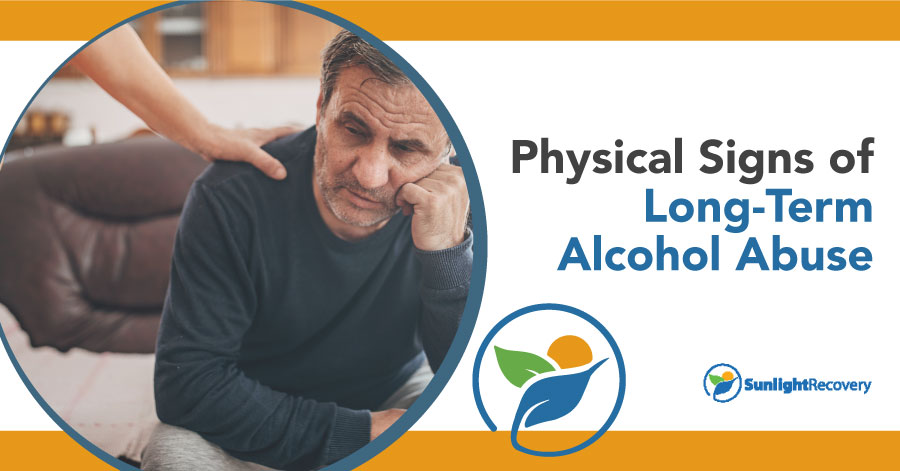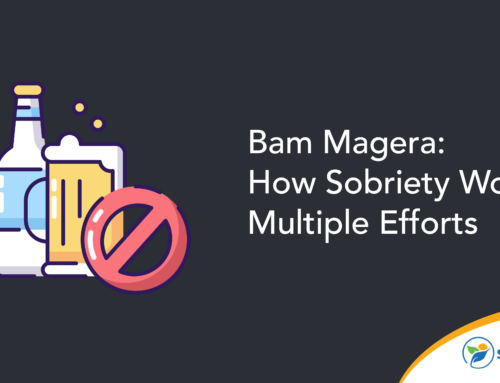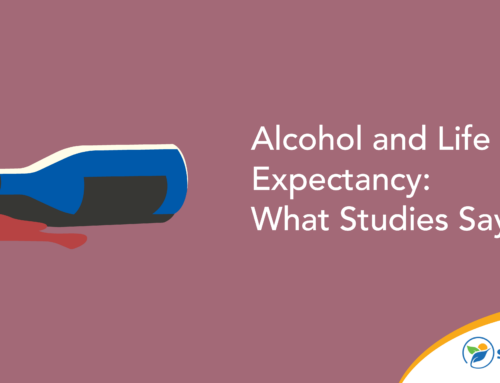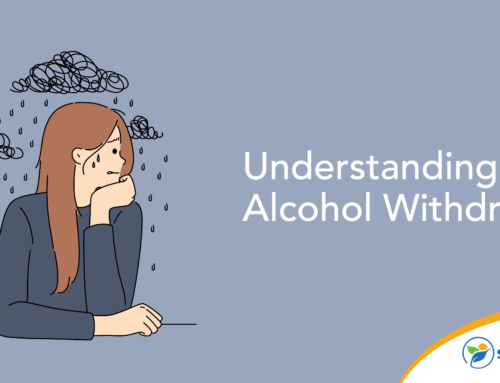An estimated 29.5 million people in the United States have alcohol use disorder, and millions more engage in binge drinking. Alcohol is commonplace in many social situations, so it’s easy to get swept up in excessive drinking without thinking about the long-term effects of alcohol abuse.
Long-term heavy drinking has emotional, mental and physical side effects. Knowing the warning signs can make it easier to spot when casual drinking has progressed into something more concerning.
Long-Term Effects of Alcohol on the Body
Drinking too much alcohol can impact physical health in many ways and, in some cases, have serious health consequences. In fact, 178,000 people die from excessive alcohol use each year. The long-term effects of alcohol on the body include the following.
Bloating
One of the most common physical signs of alcoholism is something known as the alcoholic face. Wondering how to spot an alcoholic face? Watch for signs that the person’s face is constantly puffy and bloated. Alcohol leads to dehydration, and our bodies typically respond to the lack of water with bloating. Someone who’s recently been drinking excessively can look puffy in the face and bloated in the stomach.
Weight Changes
Another common sign of a drinking problem is weight gain. Alcohol has a lot of calories, so someone who’s drinking quite regularly will often notice their weight go up. Additionally, it’s easy to consume hundreds of liquid calories without feeling full in comparison to food, so it’s easy to overindulge in alcohol. When weight gain is significant enough that a person becomes obese, they may develop health problems, as obesity raises the risk of heart disease, type 2 diabetes and other medical conditions.
Eye Effects
Alcohol widens the tiny blood vessels in the eyes, which causes more blood to flow through them and leaves them looking bloodshot. In addition to bloodshot eyes, the person may have dark under-eye circles from lack of sleep.
Skin Effects
Alcohol dissolves in water and lipids, allowing it to affect every part of your body. Therefore, drinking too much long-term can result in significant skin changes, which often appear early compared to other physical symptoms of alcoholism. Signs of alcoholism on your skin can help doctors detect the disease at an earlier stage and potentially prescribe treatment to reverse the damage and promote recovery.
Some skin changes and problems associated with alcohol’s long-term effects include:
- Flushing. When you drink too much alcohol over a sustained period, your brain struggles to regulate your cardiovascular system. Dysregulation often causes enlarged blood vessels, leading to facial redness. Furthermore, your body may produce excess histamine when it breaks down alcohol into acetaldehyde. Too much histamine can cause temporary flushing, though it’s more likely to affect regular heavy drinkers. Increases in estrogen levels associated with drinking can also lead to palmar erythema, which is redness on the skin of the hands.
- Rosacea. Alcoholism can increase your risk of developing rosacea, an inflammatory condition that causes a red rash. The rash most commonly occurs on the nose and cheeks, but it can affect any part of your body. However, you shouldn’t assume that someone with rosacea drinks too much. Rosacea can also affect people who don’t drink alcohol or who consume it within the recommended guidelines.
- Jaundice. You may notice more significant skin changes if you develop liver disease due to alcohol abuse. Liver problems make it harder to break down bilirubin, a substance found in red blood cells. Excess bilirubin can cause jaundice, a condition that makes your skin and the whites of your eyes appear yellow.
- Spider veins. Excess estrogen associated with drinking can lead to spider telangiectasia, also known as spider veins. Spider veins look like small, raised blood vessels radiating from a central vessel like spider legs.
- Hyperpigmentation. In some cases, long-term alcohol abuse can lead to the development of dark patches of skin. These occur most commonly on the face and legs. Scientists are still working to learn why this occurs, but changes in liver function likely play a role.
- Psoriasis. A chronic skin condition, psoriasis causes thick, scaly patches of reddened skin to form on the knees, trunk, scalp, elbows and other parts of the body. People who drink alcohol regularly may be more likely to develop psoriasis, but more research is necessary to determine why.
- Pruritus. As previously mentioned, alcohol use causes dehydration, and it can interfere with the body’s ability to absorb nutrients. In some people, these two factors combine to cause pruritus, which is itchiness of the skin that causes a strong desire to scratch.
- Seborrheic dermatitis. Seborrheic dermatitis is a scaly, red and itchy rash that occurs on the scalp and other oily parts of the body. Alcohol use is one of the most common causes of flare-ups in people with the condition.
Liver Problems
When you drink alcohol, your liver is responsible for breaking most of it down. Long-term alcohol abuse places strain on the liver and can eventually lead to alcohol-associated liver disease. The condition usually consists of three stages:
- Steatotic (fatty) liver. In early alcohol-associated liver disease, fat accumulates in liver cells, causing the organ to work less efficiently.
- Acute hepatitis. If alcohol-associated liver disease progresses, the liver becomes inflamed. Liver cells get damaged and start to die due to the inflammation.
- Cirrhosis. During the final stage of alcohol-associated liver disease, large sections of liver tissue begin to die, resulting in scarring. When the scarring becomes severe enough, a person can develop liver failure, which may be fatal.
Cardiovascular Problems
Long-term alcohol use can cause blood vessels to constrict, contributing to cardiovascular problems such as:
- Hypertension. The narrowing of blood vessels can lead to chronic high blood pressure or hypertension. Research shows that people who habitually consume just one alcoholic beverage per day have higher blood pressure levels than those who don’t.
- Cardiomyopathy. Around 1% to 2% of people who drink more alcohol than the daily recommended amount develop cardiomyopathy, which is a condition where the heart changes shape and works less efficiently.
- Arrhythmia. Alcohol use can lead to arrhythmia or an abnormal heart rhythm, which may cause damage to the heart over time.
- Ischemic heart disease. Narrowing and hardening of the arteries linked to drinking can reduce blood flow to the heart, contributing to heart disease that raises the risk of heart attack and stroke.
Other Health Problems
Due to the long-term effects of alcohol on the body, excessive drinking is also associated with other health conditions, such as:
- Pancreatitis and pancreatic cancer
- Parkinson’s disease
- Fecal and urinary incontinence
- Esophageal cancer
- Oral cancers
- Colorectal cancer
- Muscle wasting
- Reduced bone density
Many of these health problems are serious and can even cause death.
Alcohol’s Long-Term Effects on Mental and Emotional Health
Mental and emotional changes are also among the long-term effects of alcohol. Over time, drinking can lead to the following issues.
Cognitive Changes
Long-term alcohol use can cause chemical changes that affect brain function and may lead to:
- Memory loss. Drinking may make a person more forgetful and can raise the risk of developing dementia later in life.
- Cognitive impairment. Long-term alcohol use may interfere with a person’s judgment and problem-solving abilities.
- Speech impairment. Alcohol can cause dysfunction in the part of the brain that controls speech and language.
Changes in Demeanor
Excessive drinking often comes with behavioral and personality changes. As they continue to prioritize their drinking above all else, a person who abuses alcohol may lose interest in their hobbies. Passions they once loved no longer matter to them. Additionally, relationships and friendships they used to put a significant effort into now seem unimportant.
Lastly, drinking can sometimes bring out an aggressive streak in some people. Signs of aggression and irritability can also carry over into sober moments as the person deals with withdrawal symptoms when not drinking.
Other Long-Term Effects of Alcohol
Alcohol can impact many aspects of a person’s life beyond their physical and mental health. The following are some of these potential long-term effects of alcohol use.
Shirking Responsibilities
Alcohol can cause a person to change their attitude towards their responsibilities. As the addiction takes over, the person prioritizes drinking above all else. Some common signs are that the person will miss important family and friend events, stop contributing around the household and show up late or miss work frequently.
Changes in Sleep Patterns
Individuals who drink excessively or have alcohol use disorder are more prone to sleeping problems, including insomnia. One sign that someone is suffering from long-term alcohol abuse is a shift in their schedule. They may seem to keep odd hours, stay up late and have difficulties getting up early. As a result, they’ll often be late or miss work and other important life events.
Work Performance Issues
It’s probably not too surprising to find out that long-term alcohol abusers tend to see a dip in their performance at work. A person who abuses alcohol may find it challenging to focus on work as they experience withdrawal symptoms and think about when they can start drinking. Additionally, they may begin to show up late for work, overindulge at social work gatherings and even show up to work intoxicated.
Financial Impact
As we’ve already established, those with a long-term alcohol abuse problem typically let their day-to-day responsibilities slide. This means keeping up with bills can fall by the wayside. Additionally, if a person has difficulty holding down a job due to their drinking and poor work performance, they’ll struggle to keep up with their financial obligations.
There’s another side to the financial impact of long-term alcohol abuse that many people don’t think about. One of the frequent arguments brought up as a motivation to quit smoking is the high cost of cigarettes. Well, the same is true of alcohol! Whether you’re drinking at the bar or home, alcohol is expensive, especially when it’s being consumed frequently.
According to the U.S. Bureau of Labor Statistics, Americans spent an average of $583 on alcohol in 2022. However, someone who drinks heavily will likely see a much higher expenditure.
Addressing the Long-Term Effects of Alcohol
If left untreated, long-term and excessive drinking can lead to the loss of close relationships, an unstable life, severe health complications and even death. The good news is that quitting drinking can reduce the risk of physical and mental health issues and make it possible to rebuild relationships. Assistance from professional rehabilitation centers can help individuals navigate their detox and withdrawal, address any co-occurring mental health conditions and learn how to live a happy, healthy and sober life.
Sunlight Recovery Can Help
Don’t ignore the warning signs of alcohol abuse, including the emotional, behavioral and physical long-term effects of alcohol. Sunlight Recovery helps people take back control of their lives and their futures. We offer programs for medical detox, residential treatment, and continued education for sober living. Call today to find out more about how Sunlight Recovery can help.







